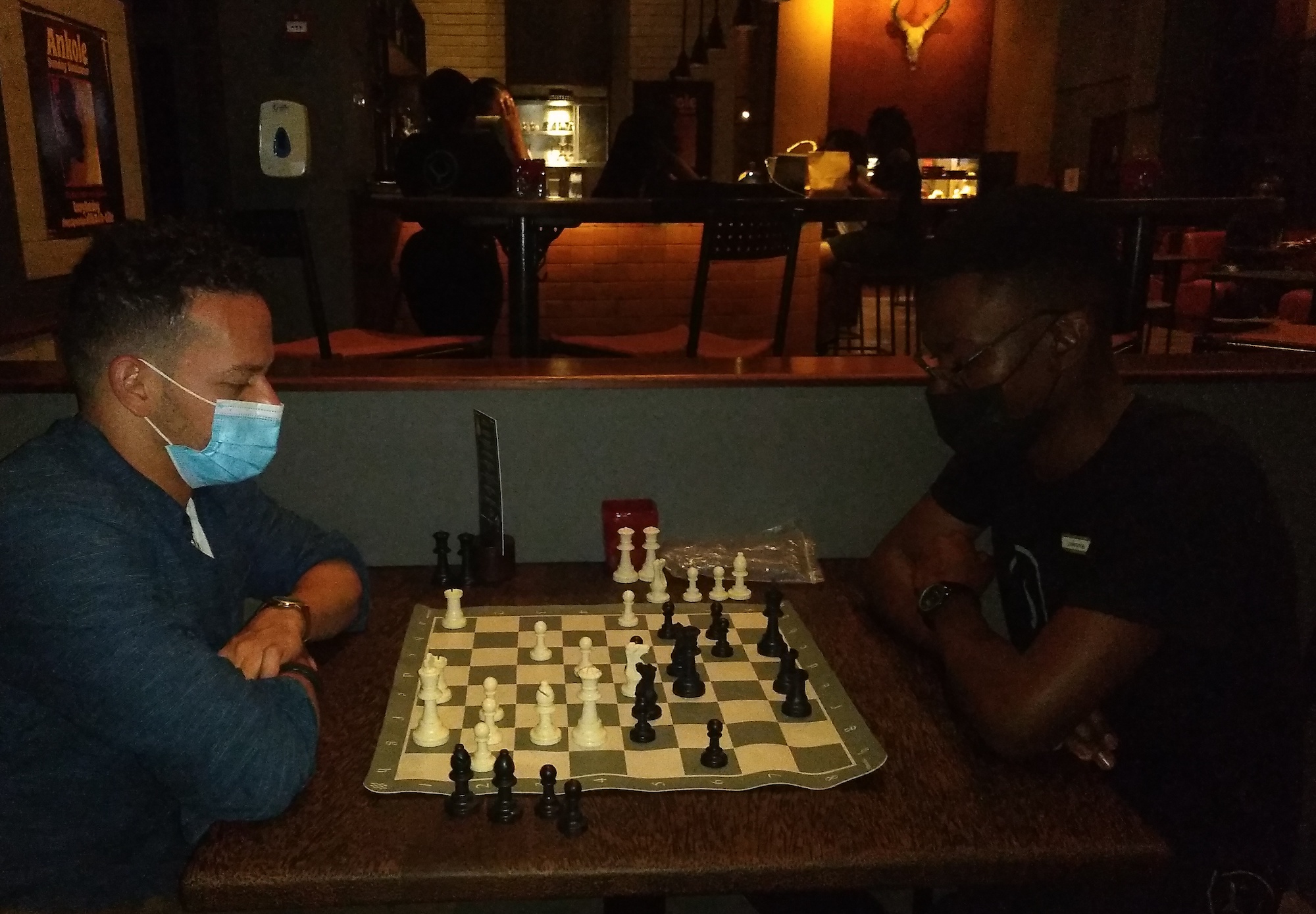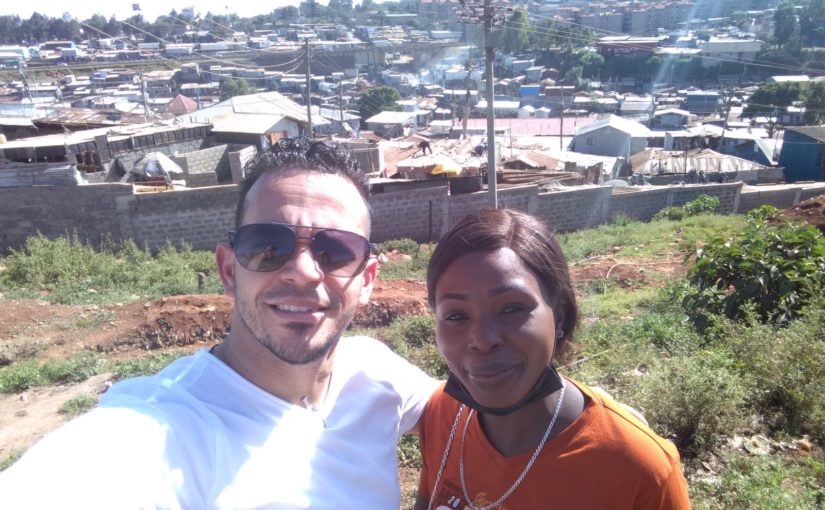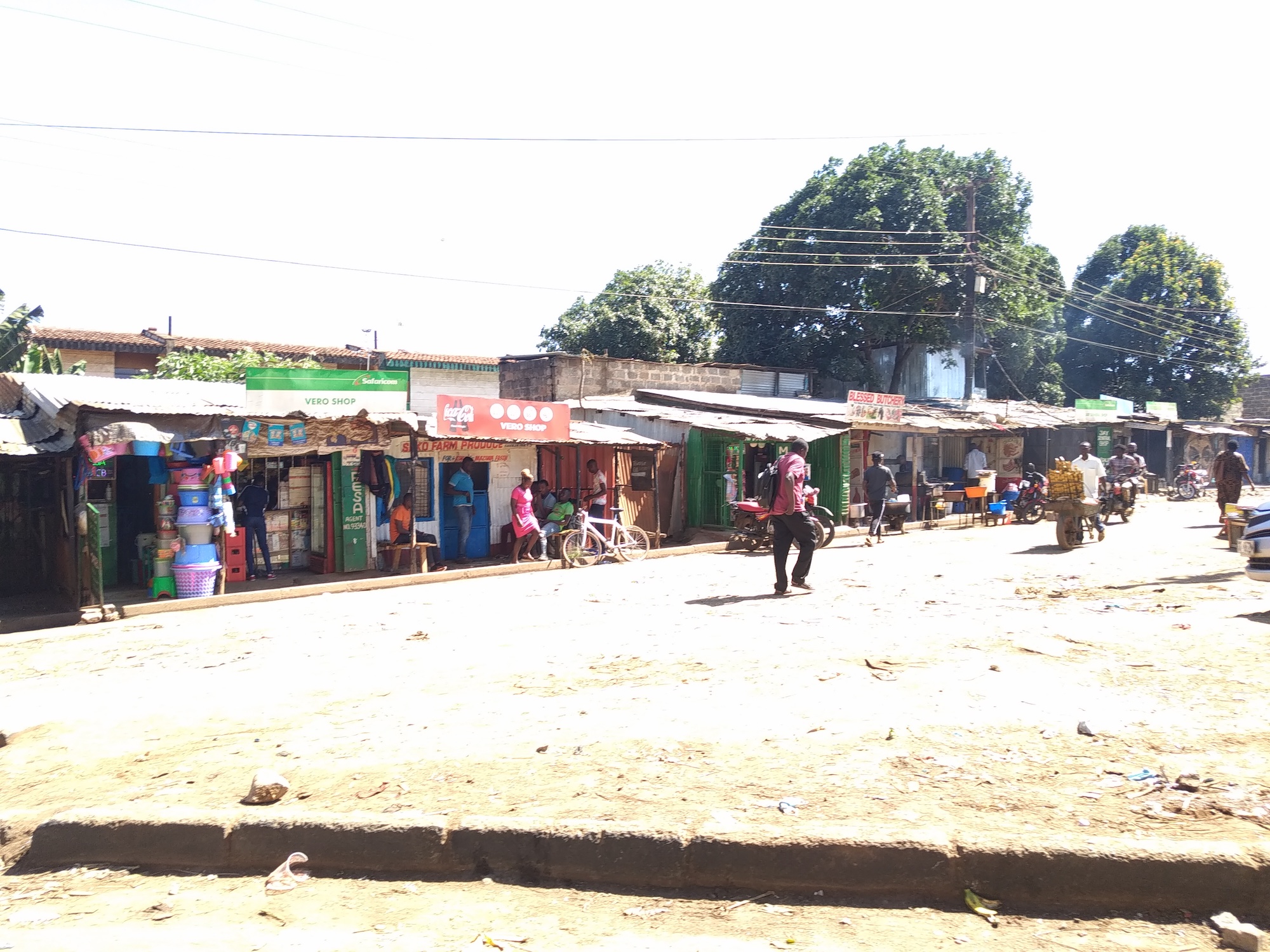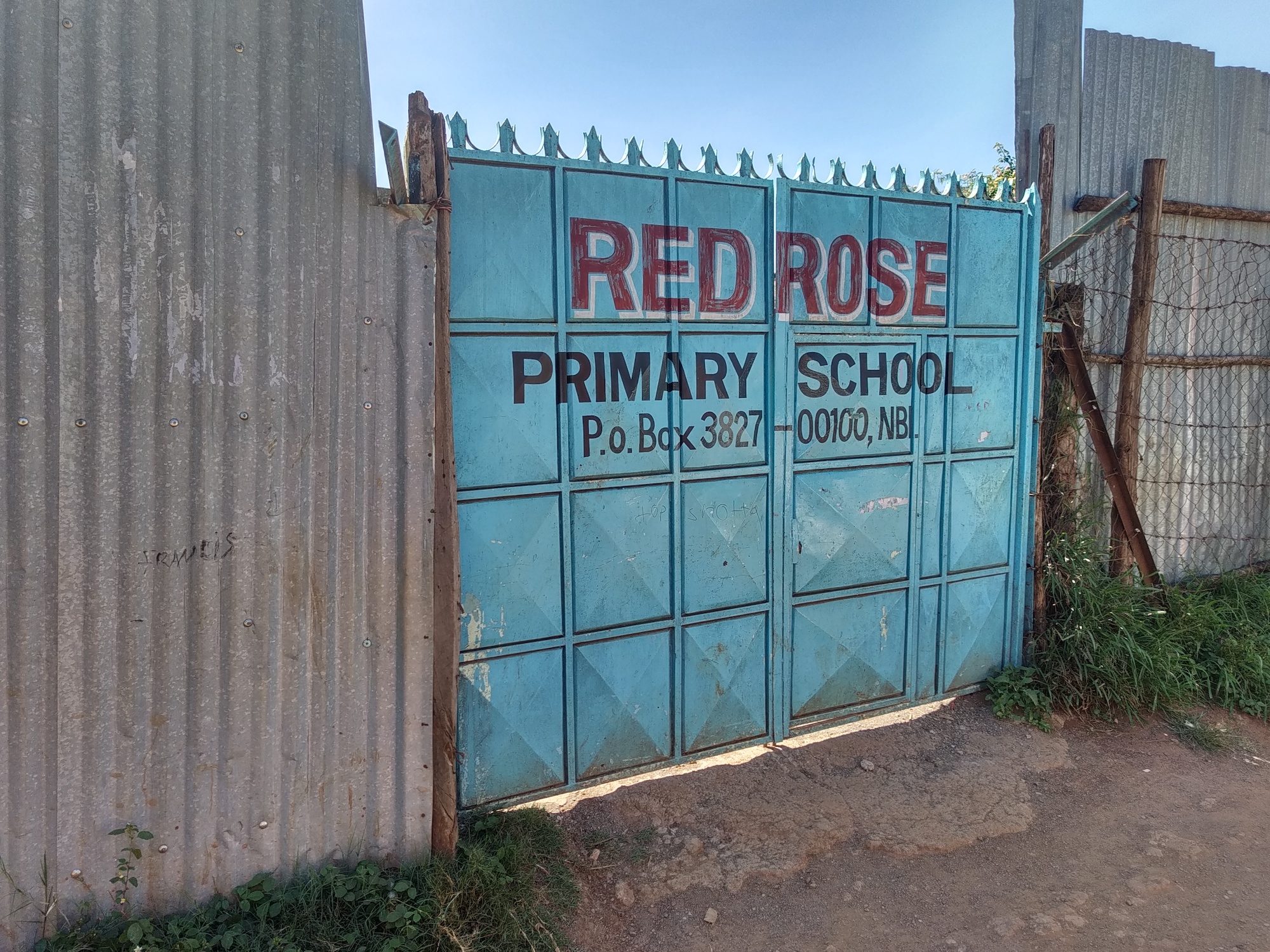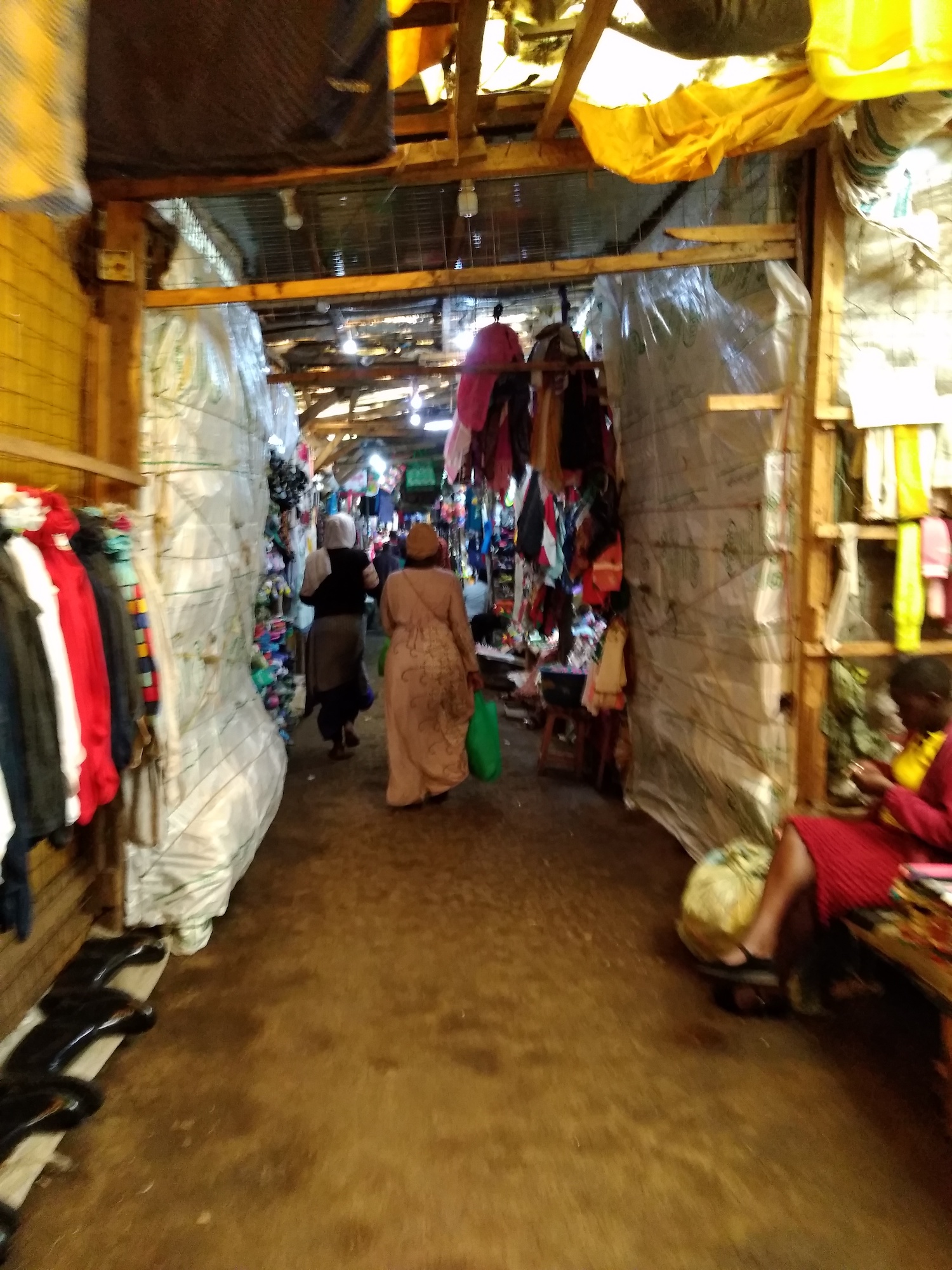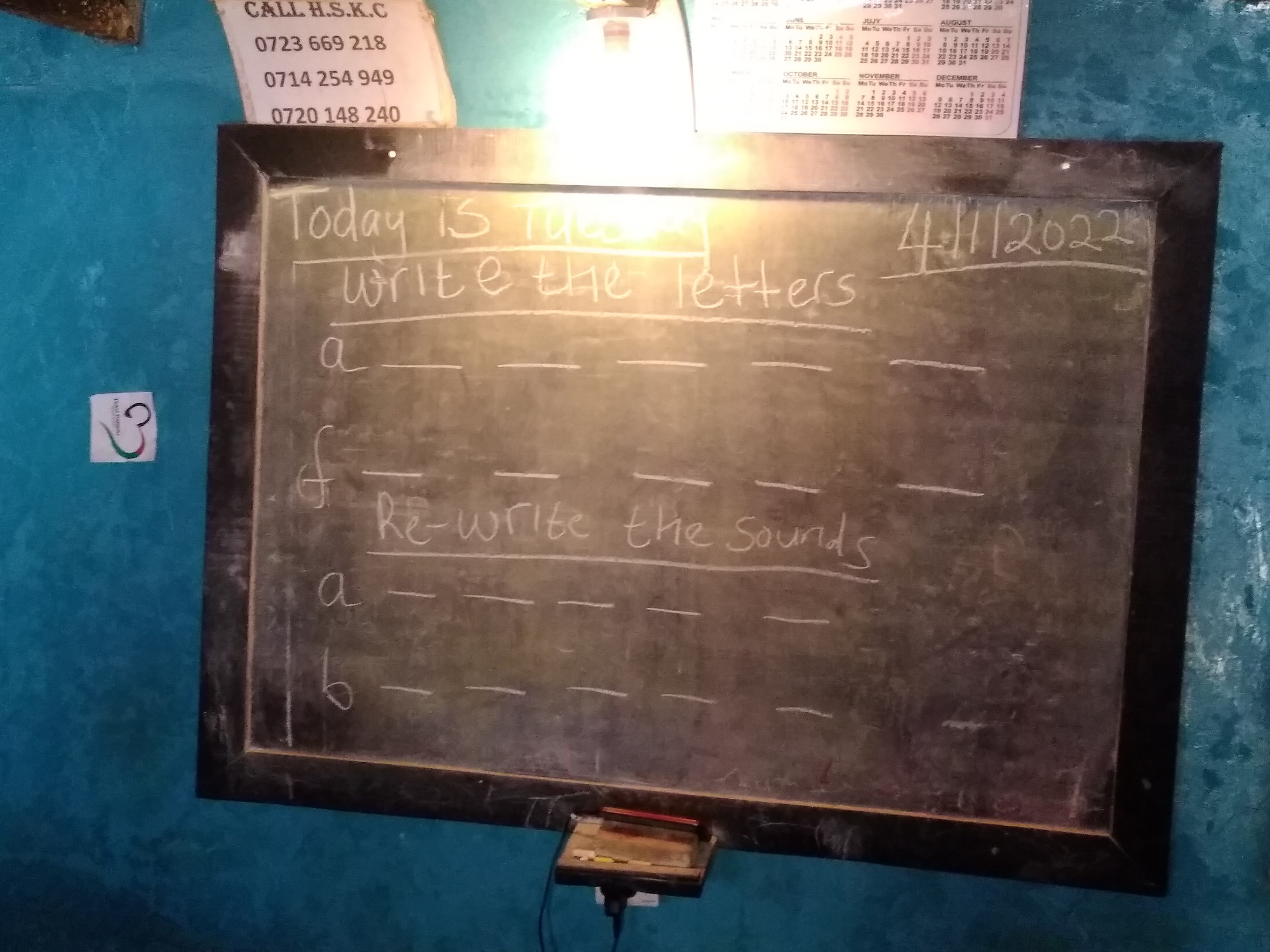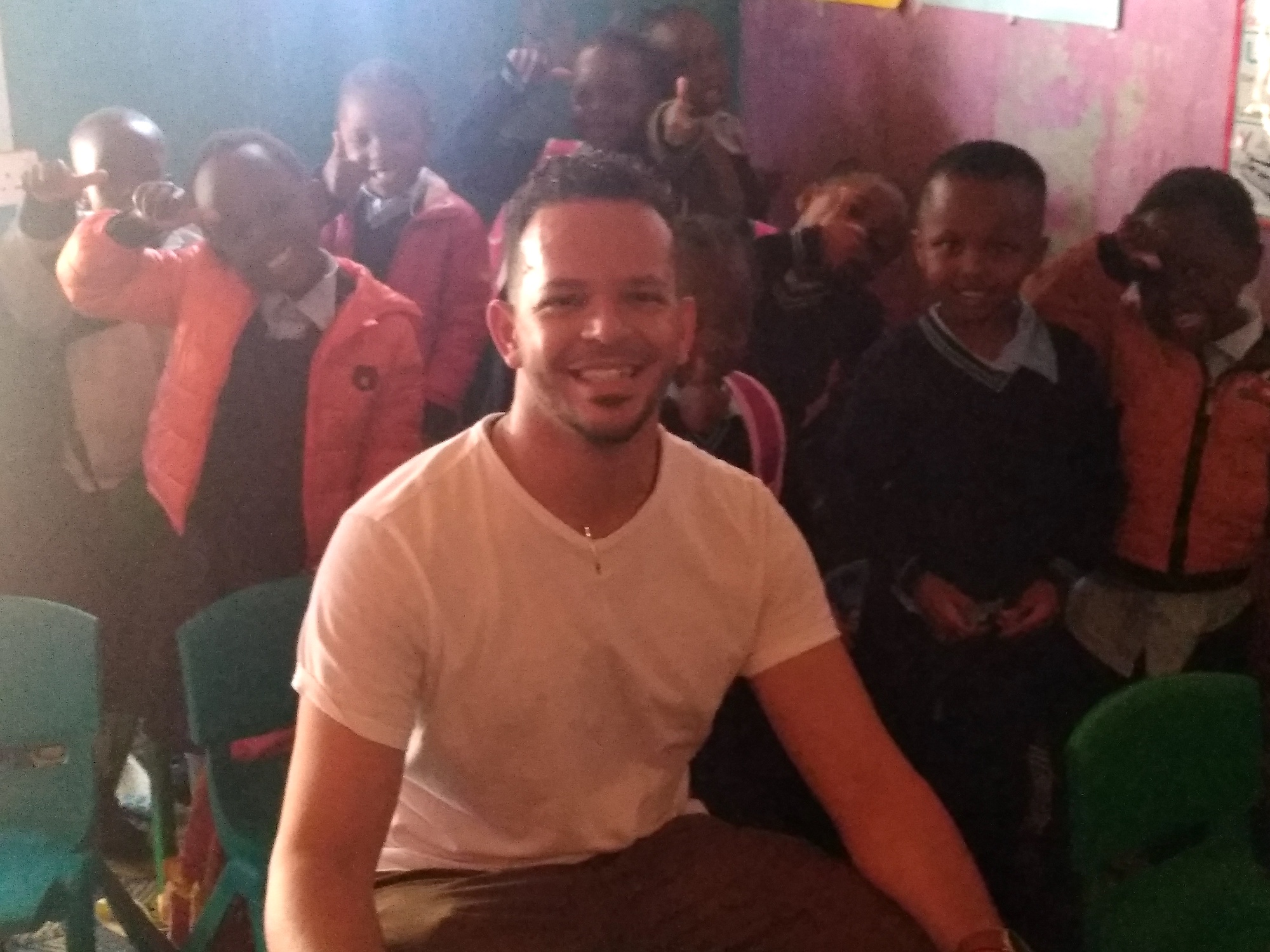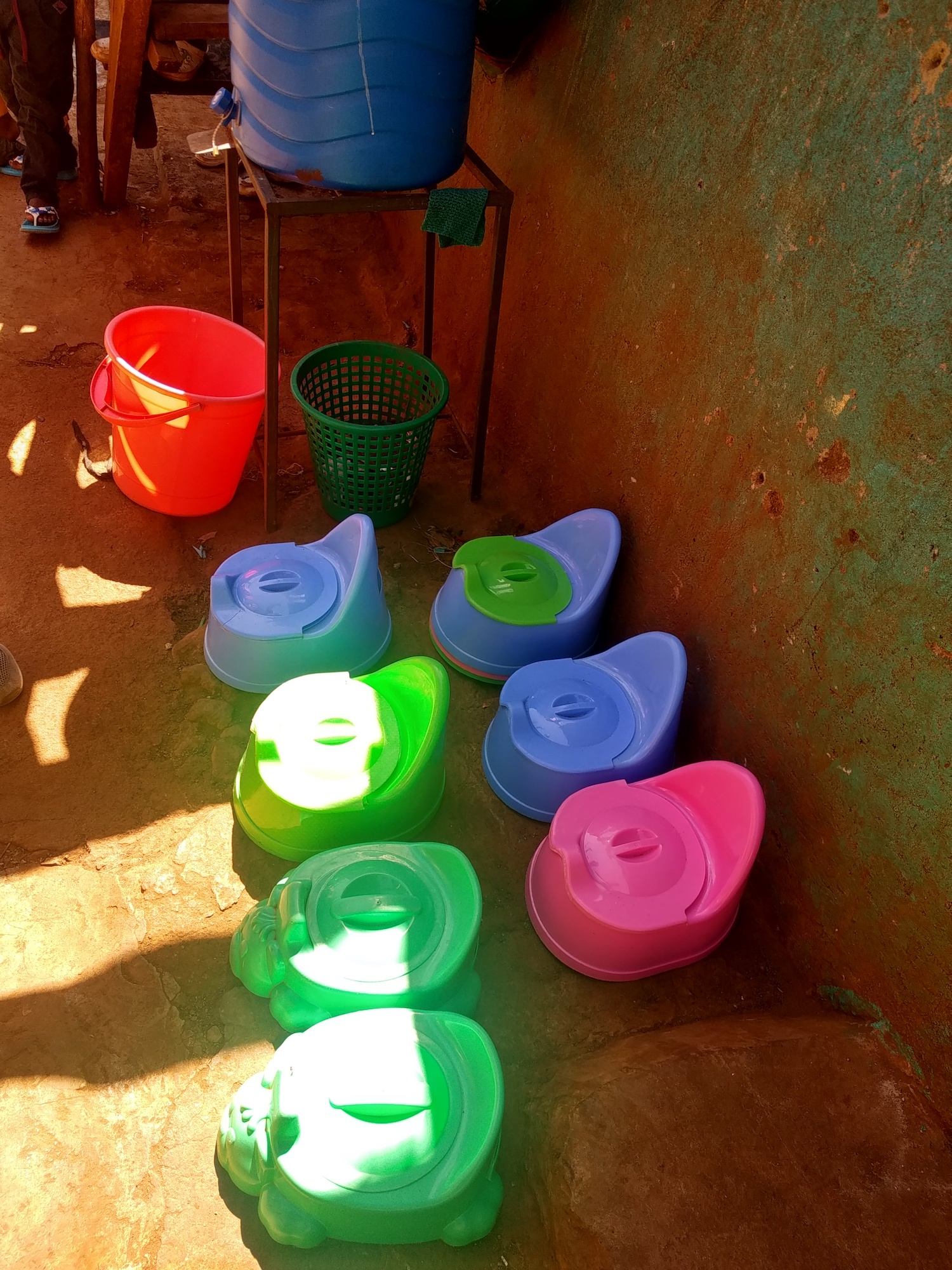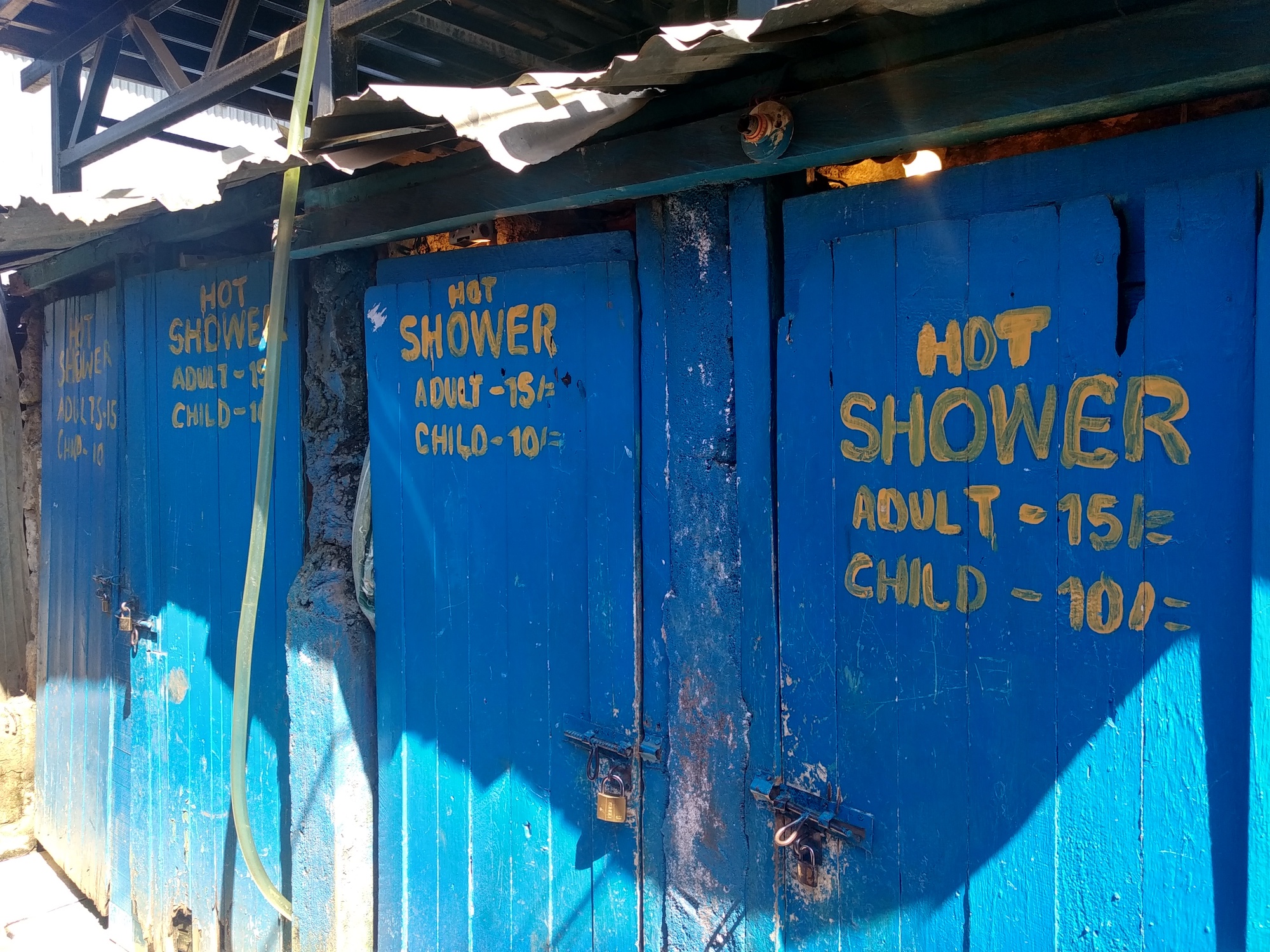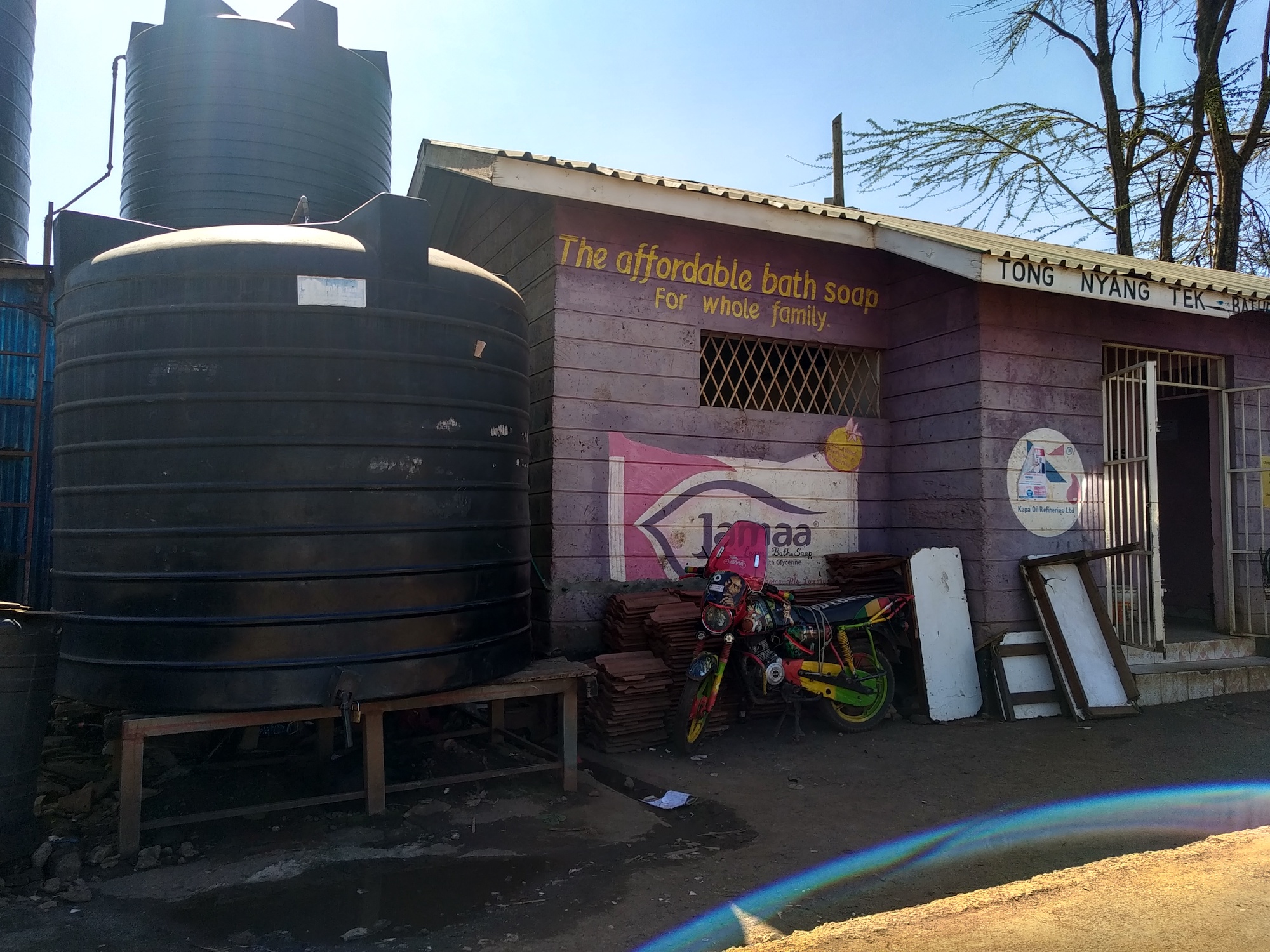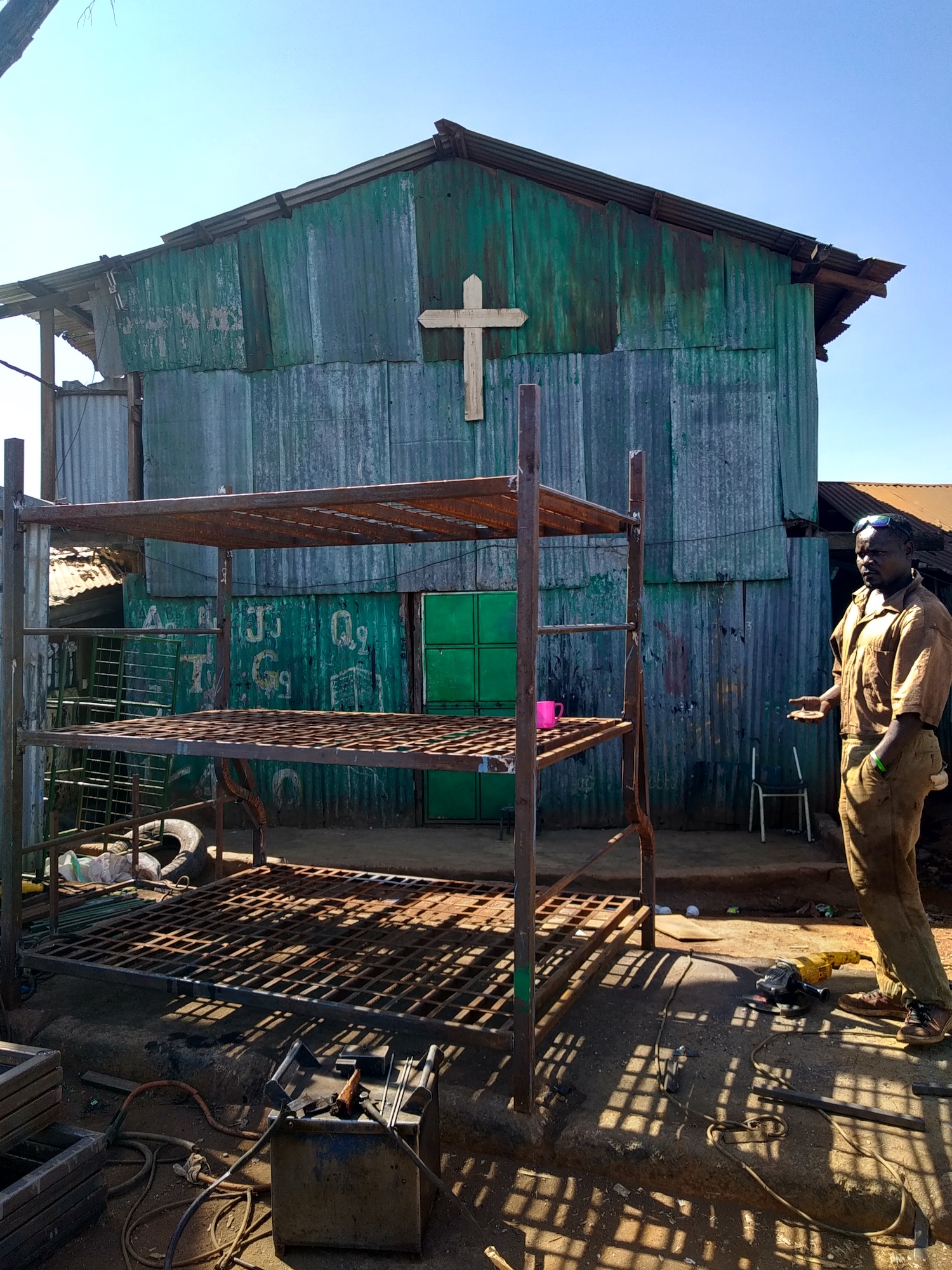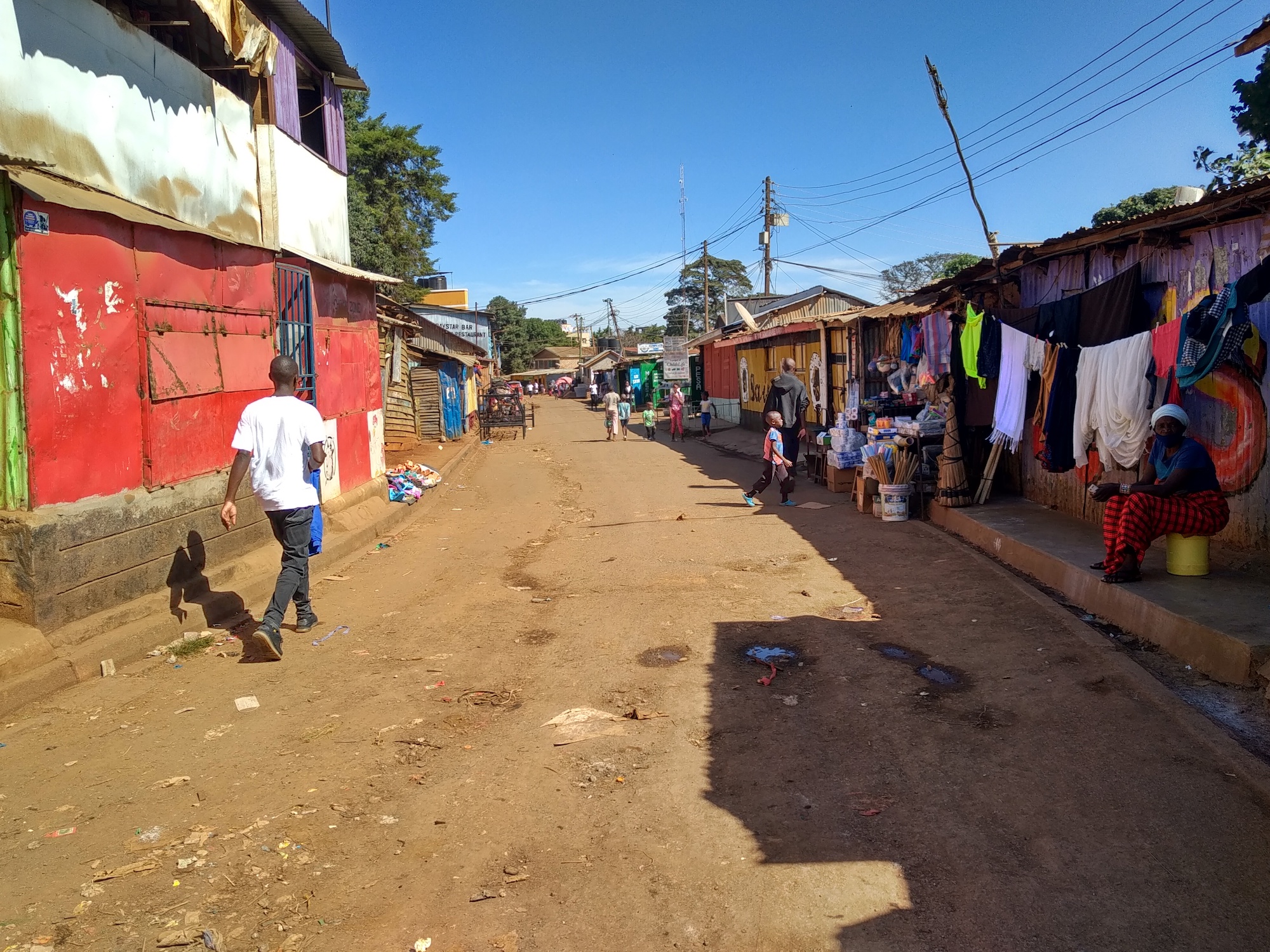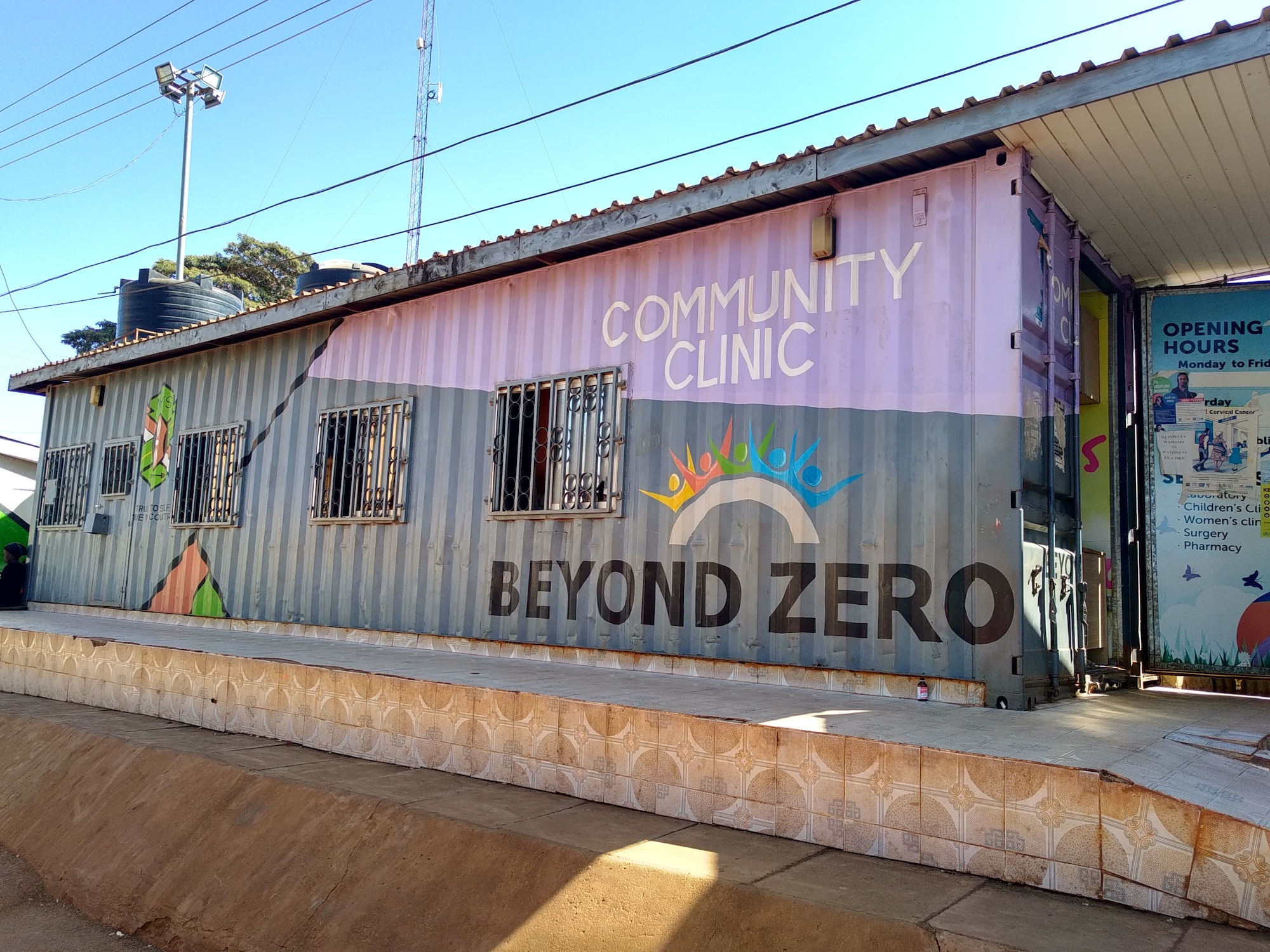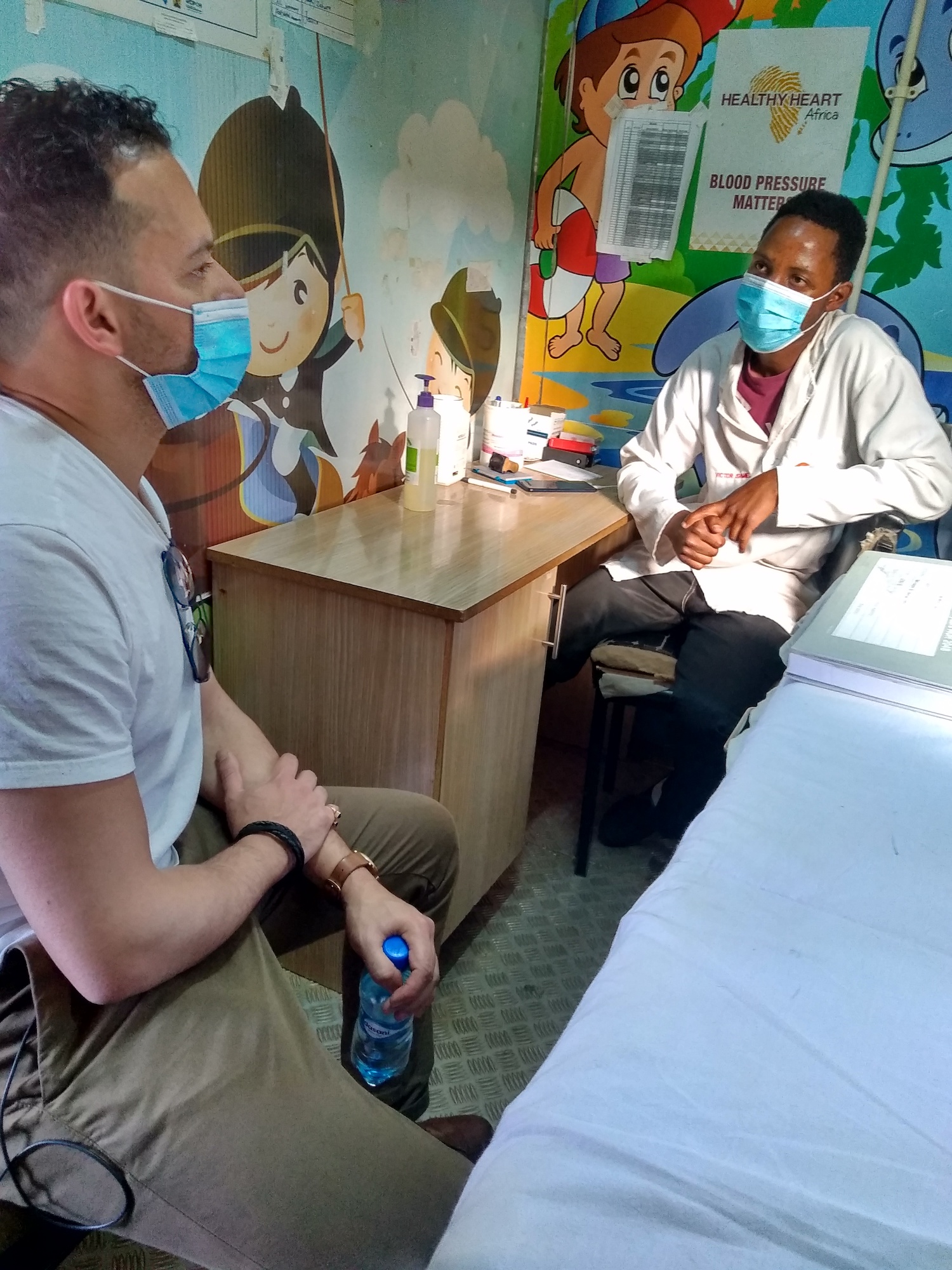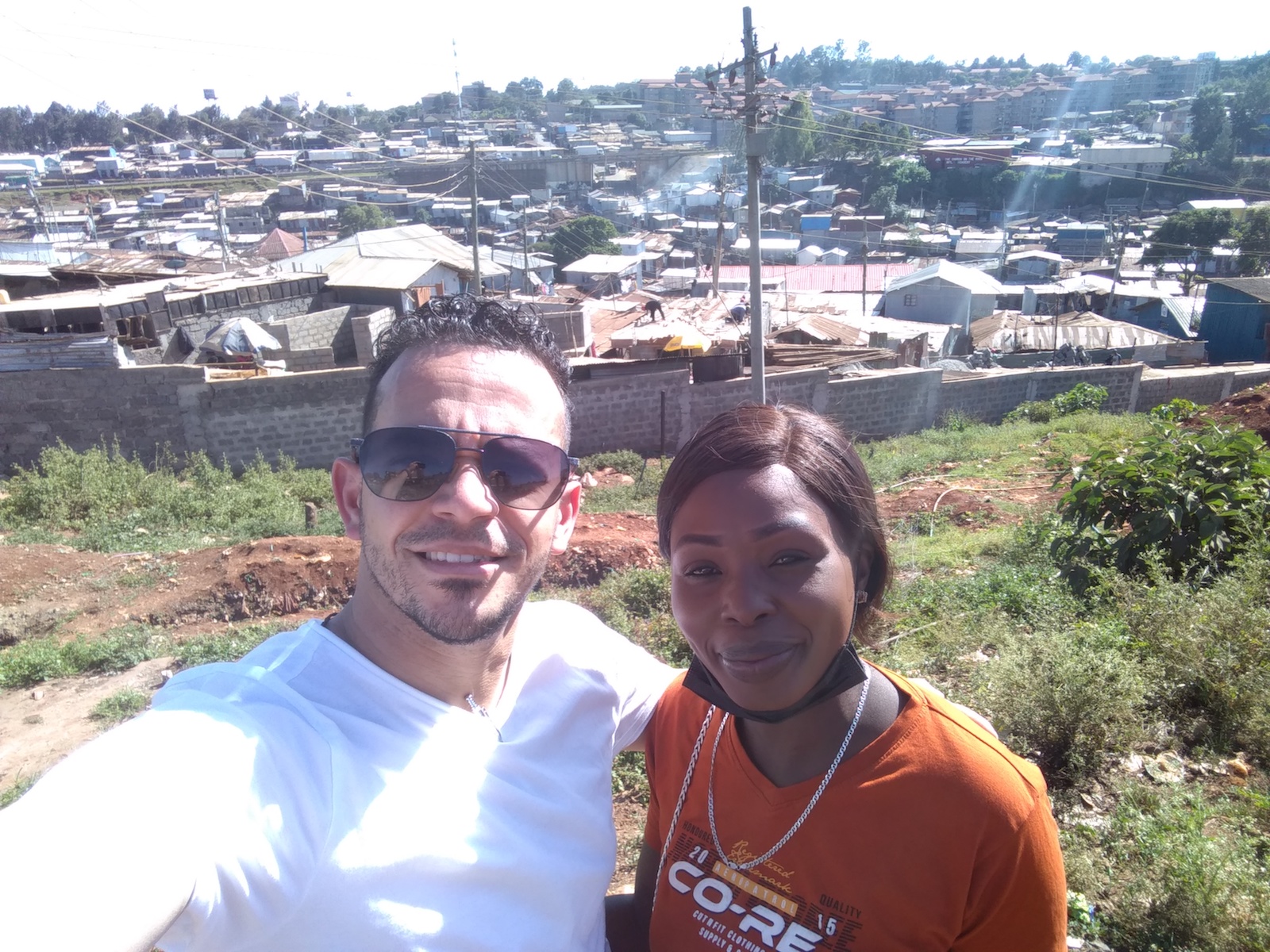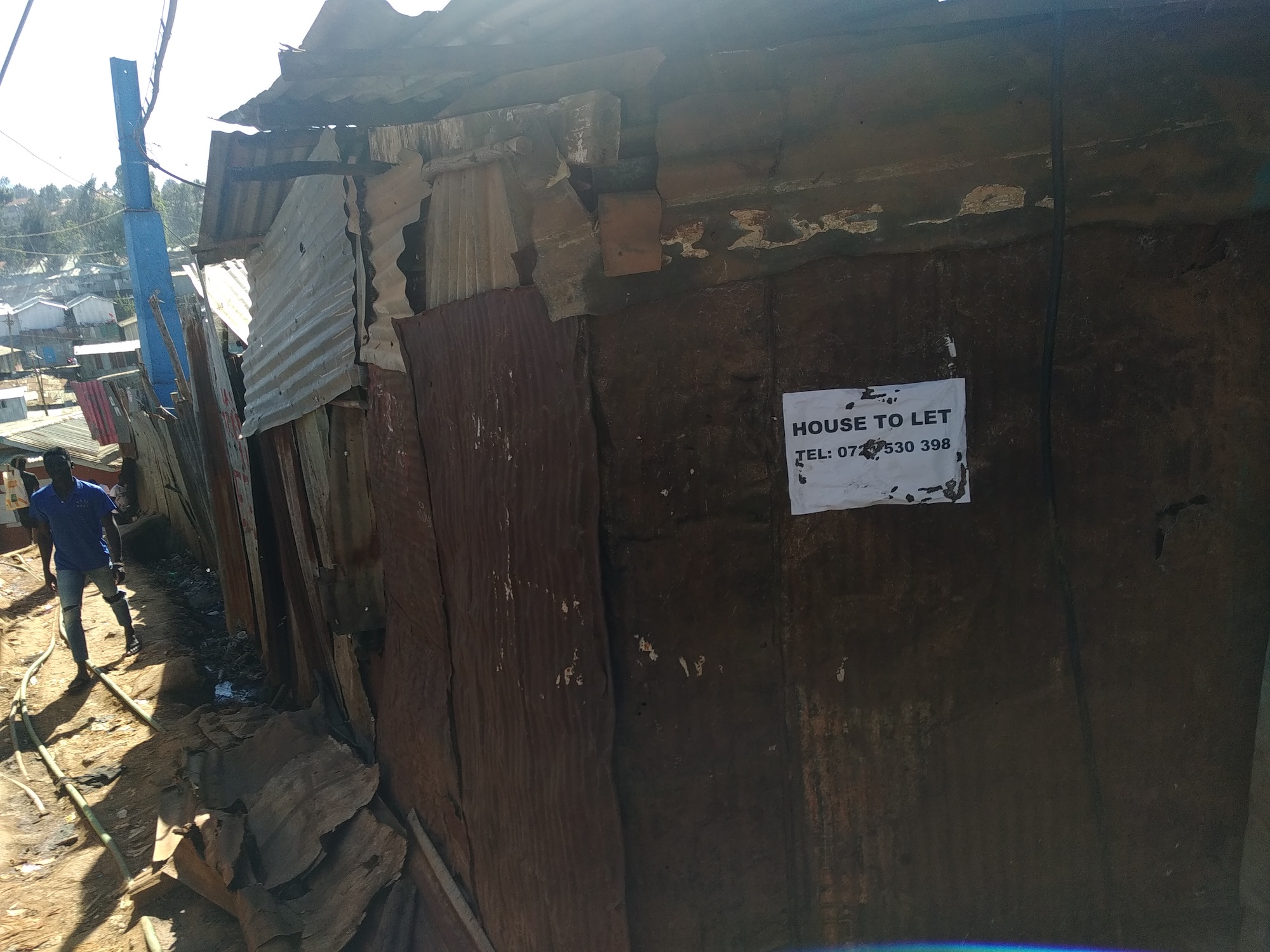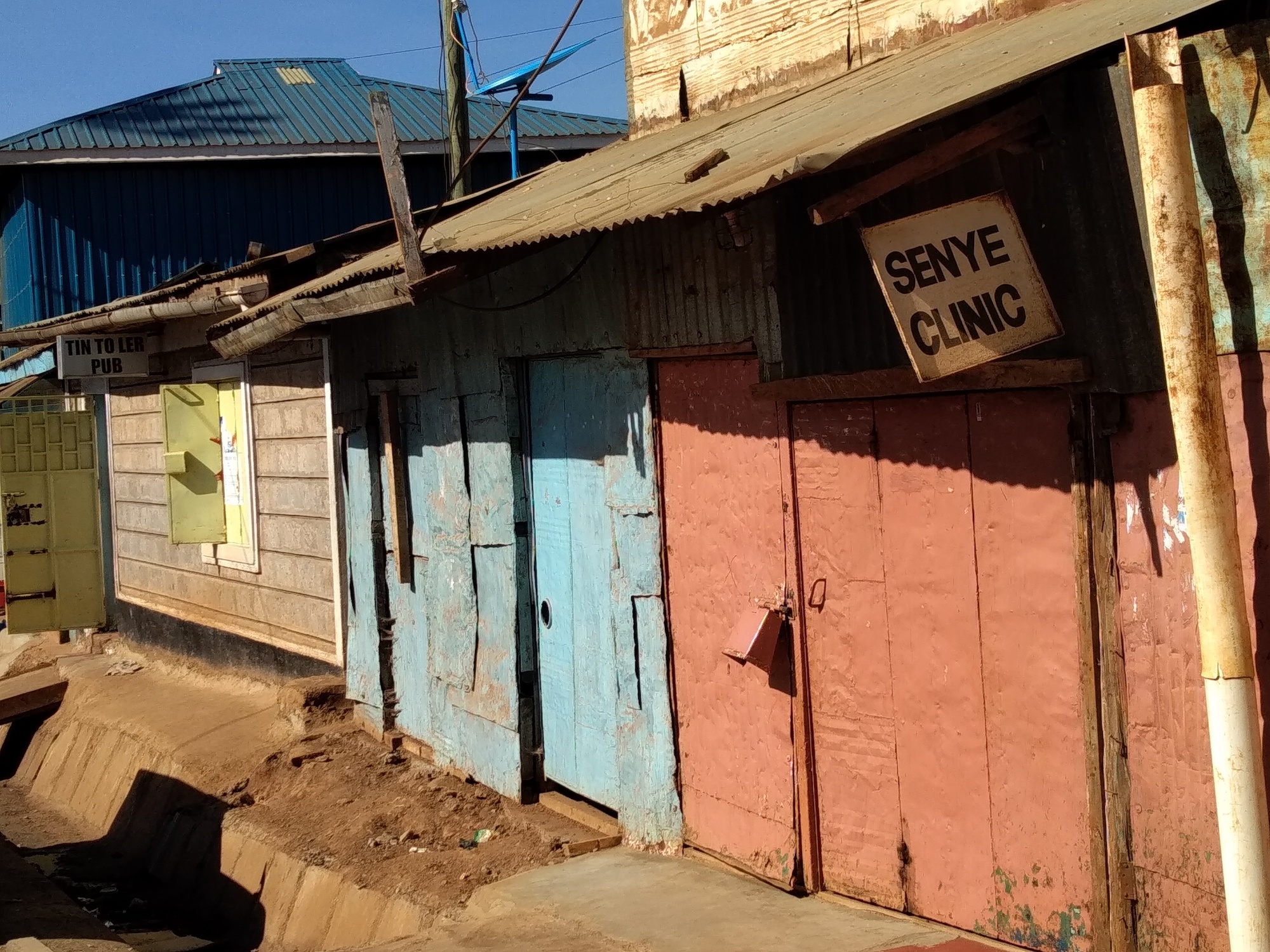I started the day by wondering, “what will I do today? and what will I do with this haircut?”
After some research, I decided to start the day with breakfast in an Eritrean roastery, and after no thinking, I decided to randomly spread some gel on my hair and not care.
The waitress in the Eritrean roastery took my order and said “ooh I like your hair!”. I said: “whaatttt??? I thought it is horrible” she said: “No, it makes you cuter”. This made me smile. Who doesn’t like a little ego-boost in the morning?
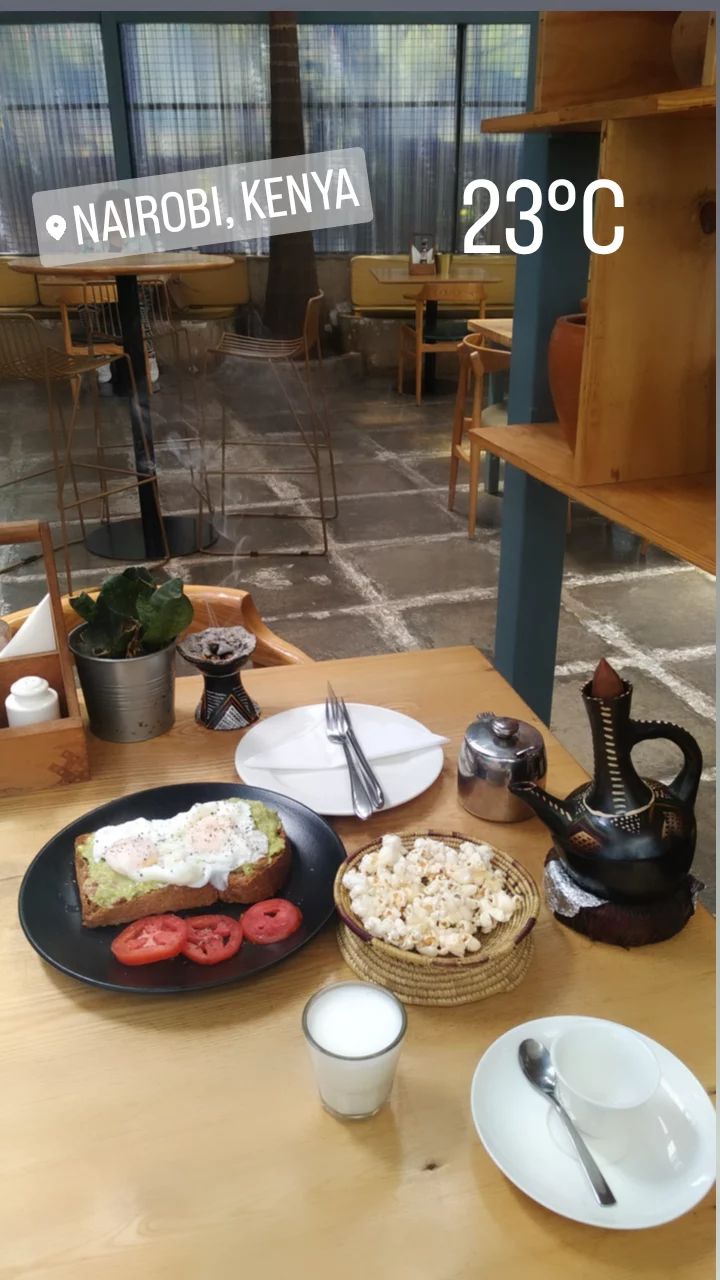
Today I planned to tour the Kibera slums. Internet-how I reached the contact of Winnie, a tourist guide that was born and raised in the slums and would take me for a tour there. I was the only tourist, so it was a private tour. What I saw today will remain vivid in my memory till the day I say Adios.
We started walking through a street market that sold second-hand clothes that were donated from other countries. The sellers go to buy these from the government, wash them, make them presentable and sell them in the market. Winnie told me that this part of the market was too expensive for the slum’s people, since the prices were fixed and bargaining was not an option. Further closer to the slums, the prices were lower and affordable. What particularly caught my attention was that the mannequins for displaying women clothes had clearly bigger booties than those in Europe. I really wanted to photograph one, but thought the locals might get offended by this Mzungo (= gringo, = خواجة).
We walked through tiny passages in the big labyrinth-like market which was full of stalls, each is a tiny one to two meters and stacked with second-hand merchandise. Everything you need. Clothes, kitchen utensils, power adaptors, everything is there. Second hand and affordable. Winnie kept greeting people throughout our path and exchanging a few words with this and that shop owner. We passed by barber shops which are tiny enough for a chair and a tiny mirror, a beauty salon where ladies can get their nails done, even hotels which are practically one room! I am walking through these passages where people paid little attention to me, not what I expected. This commercial part, the slum shopping mall if you wish, looked miserable to me, but it was buzzing with trade and movement. In most of these businesses, one can pay using the local mobile payment system called M-PESA (like TWINT in switzerland) without need for cash.
We moved then to the residential part. Winnie took me to the school before the students go home. I arrived at a tiny room with around 10 children packed like a sardine tin. The teacher had a child sitting on her lap and there was a green board with the lesson of the day written in chalk. Everything you need to learn well. I saluted the children and the teacher asked them to sing a song for me. They sang with enthusiasm as well as some little choreography. That was one of the cutest things I have ever seen. I wished them all a happy new year, and we continued our way. Outside the class were these plastic thingies where children used as toilette. Winnie showed me a concrete building of 3 rooms that they bought from donations of the tourists. I will come back to this later.
The houses were either out of metal, out of mud or the more elaborate ones have concrete. However, they all don’t have a water supply or sewage. They, therefore, don’t have bathrooms as well. Instead, there are common bathrooms you can rent. You pay 10 shillings (around 0.1 USD) per usage. If you have diarrhea you are f****. Also, the showers are to rent, warm water is more expensive. Water is also sold here. 20 Liters cost 5 shillings, but you have to carry it to your “house”. Each of the above-mentioned opened business ideas for some locals.
I walked with Winnie in disbelief. I have never seen these living conditions on this scale. It is estimated that more than a million people live here in Kibera. However miserable I found this, these people seemed to have some sort of life full of dreams, playing, social life, love, hate, ambitions, and hope. Somehow, I didn’t feel that “desperate” was part of this place.
Winnie took me to some workshops, carpenters, blacksmiths, as well as a local workshop that makes jewelry from brass and animal bones. I bought a brass ring with parts of cow’s horn to support the locals. Since it is too feminine for my taste, I will be sending it to the first female reader residing in Europe (for logistics) that claims it in the comments section 😀 .
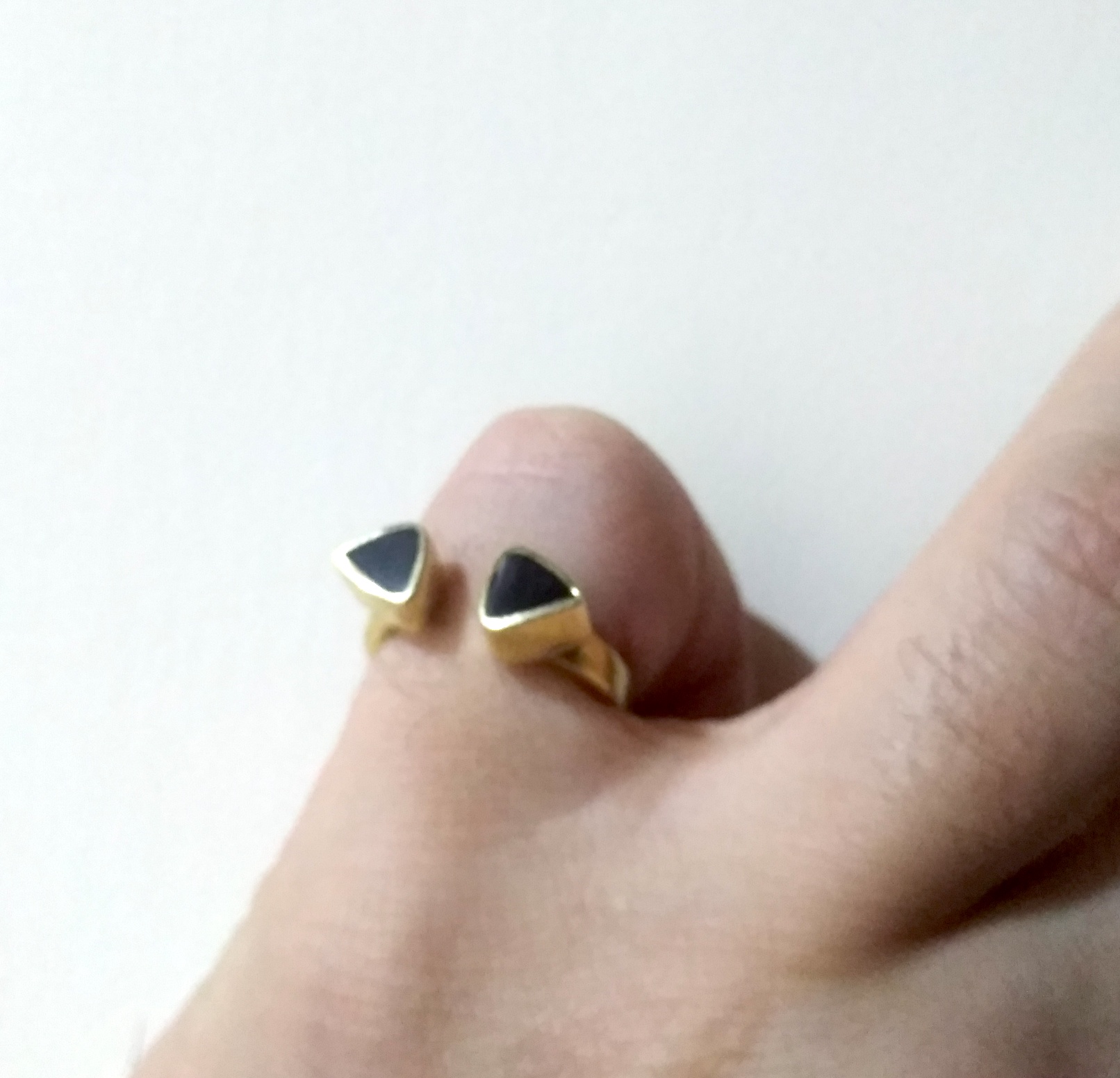
We walked further, passing by a friend of hers that was HIV positive. It seems to be a common problem here. People only discover it after their partners die! We went to a local initiative called “women empowering group” where HIV-positive women joined forces to try to make a living by doing crafts. Some of them have HIV-positive children as well. They go regularly to a health facility for antiretroviral treatment, which is covered by the government for free. I was sitting among them, listening and contemplating at the same time. I have no words.
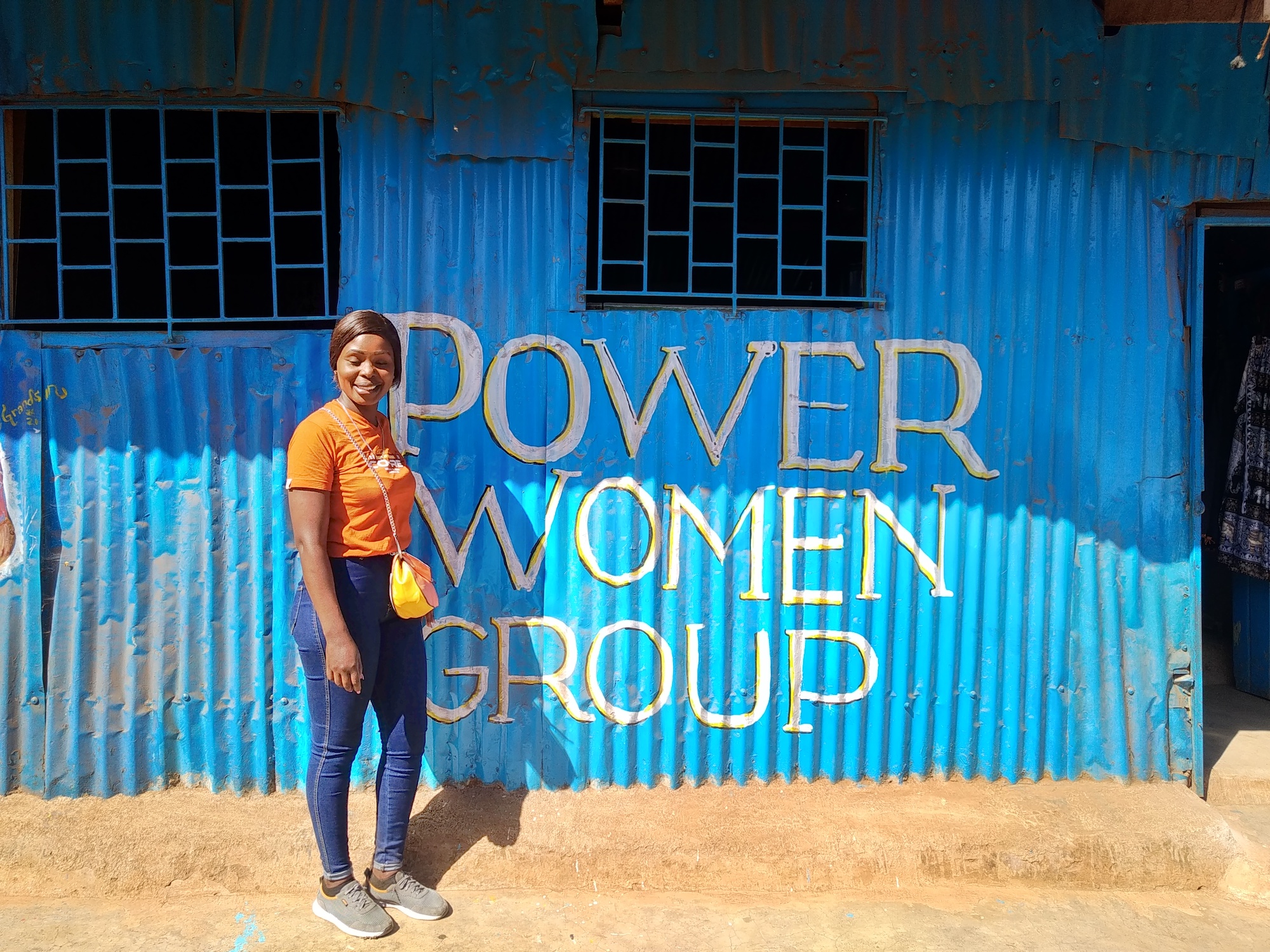
In front of the workshop of power women group. This is Winnie my guide 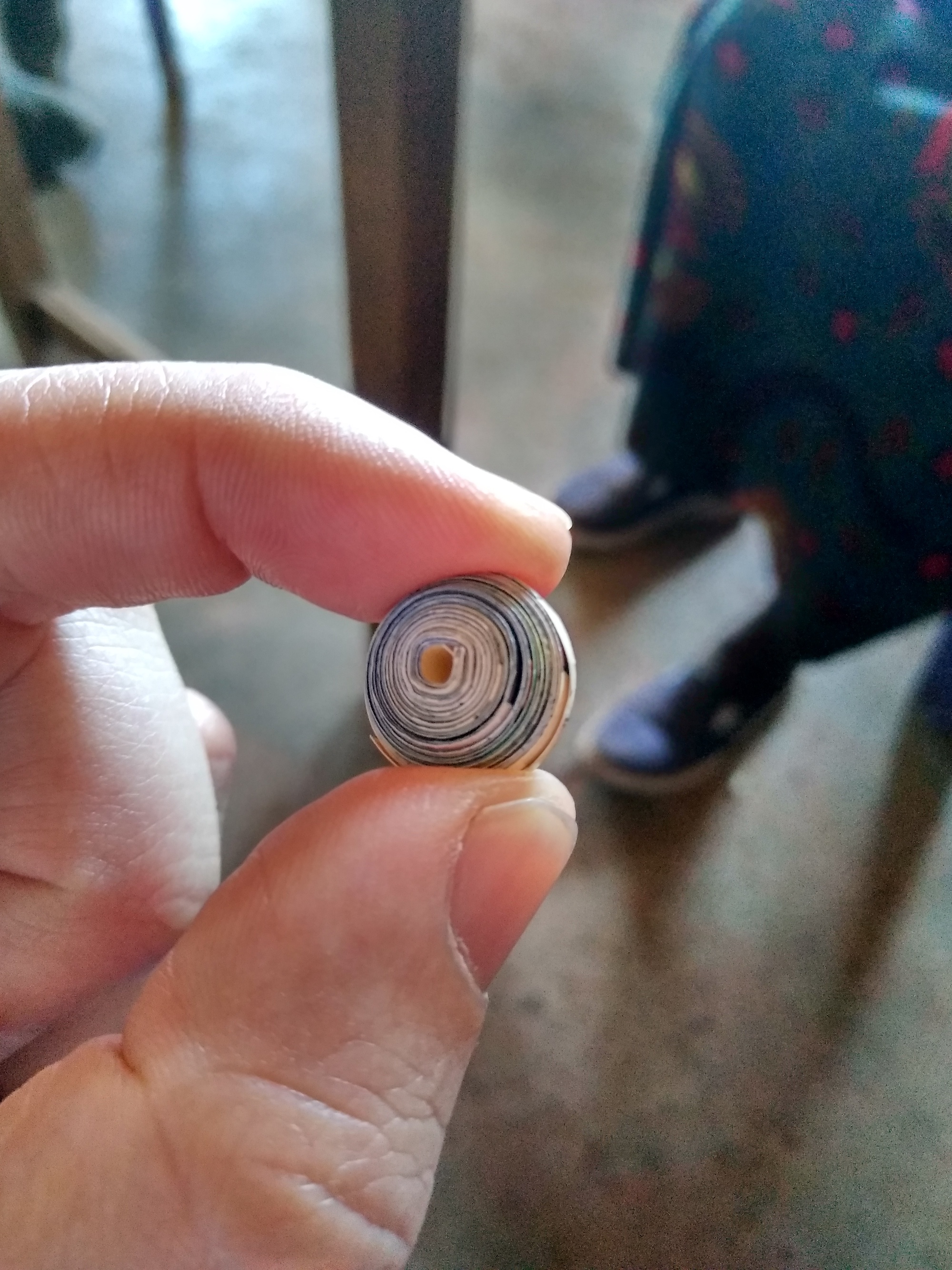
The power women rolled paper to make beads, the beads made bracelets that they sold
More walking, more images flash in front of my eyes. More stories are told casually by Winnie. At times I felt overwhelmed. She asked me regularly: “do you have questions?”, and I didn’t have. I think at times I didn’t want to know more. I was afraid I might not be able to handle all of this.
We passed by a container that had “community clinic” on it. I asked Winnie if we could go inside. Inside I met Victor, a physician assistant (which is a 4 years study). He does a doctor’s job for the major part since this was a level-1 health care facility. There are multiple more levels. You can find doctors only starting from level 4 or so. The biggest hospital in the country is level 6. I asked him a few questions about the healthcare system and about what he would do if he suspects a stroke. There are only a few places that have a CT.
Winnie took me to some platform where I could see the whole slum area. Then she took me to her home in the slums which she shared with her brother. The rooms are separated by curtains. Almost every house has a sleeping area, a sitting area, and a cooking area. They usually cook with charcoal because it is the cheapest. If it is cold, they cook inside their houses. They have electricity that is stolen from the government lines. Every now and then the government raids these line connections. However, the locals restore the connections immediately after the raid.
I bid Winnie farewell, I paid her the fees and obviously a donation. I promised her that I will mention the cause here. The donations are supposed to go to building the school for those children. We agreed to meet before I fly back home. So if you, my dear reader, would like to donate something to this school, and you trust me, you can contact me privately (you will know how).
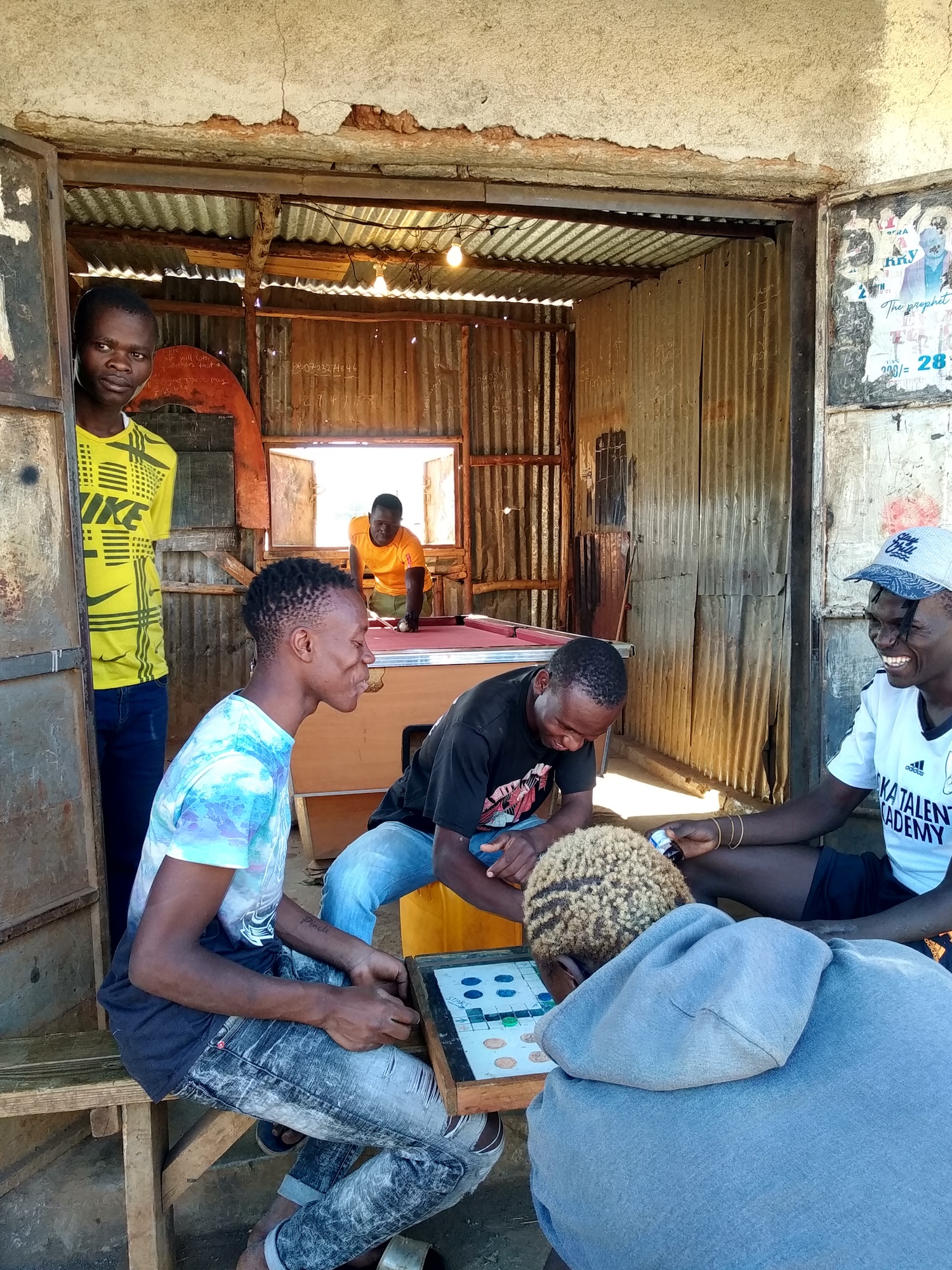
Some guys playing billiards and some playing ludo 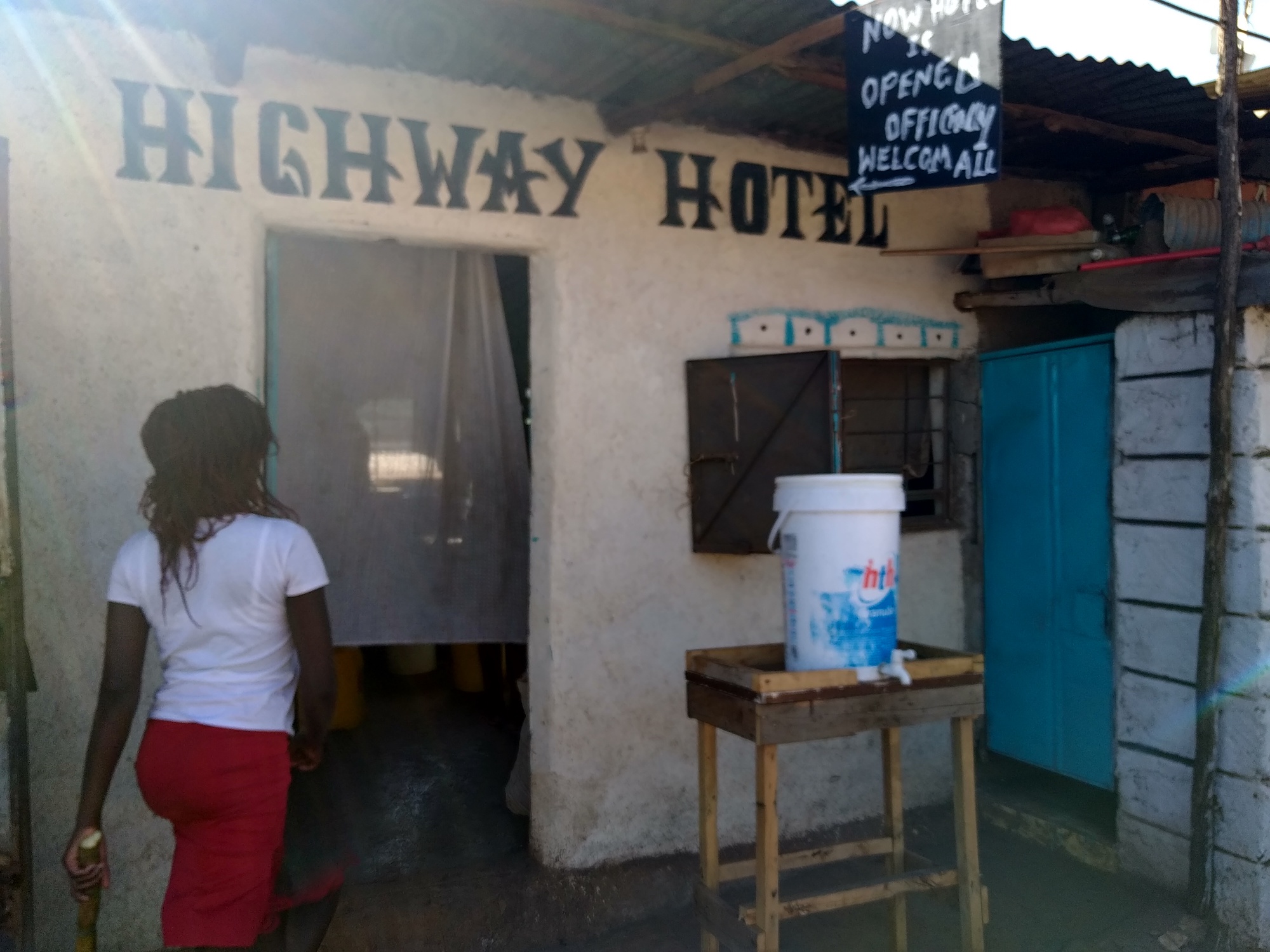
A one-room hotel 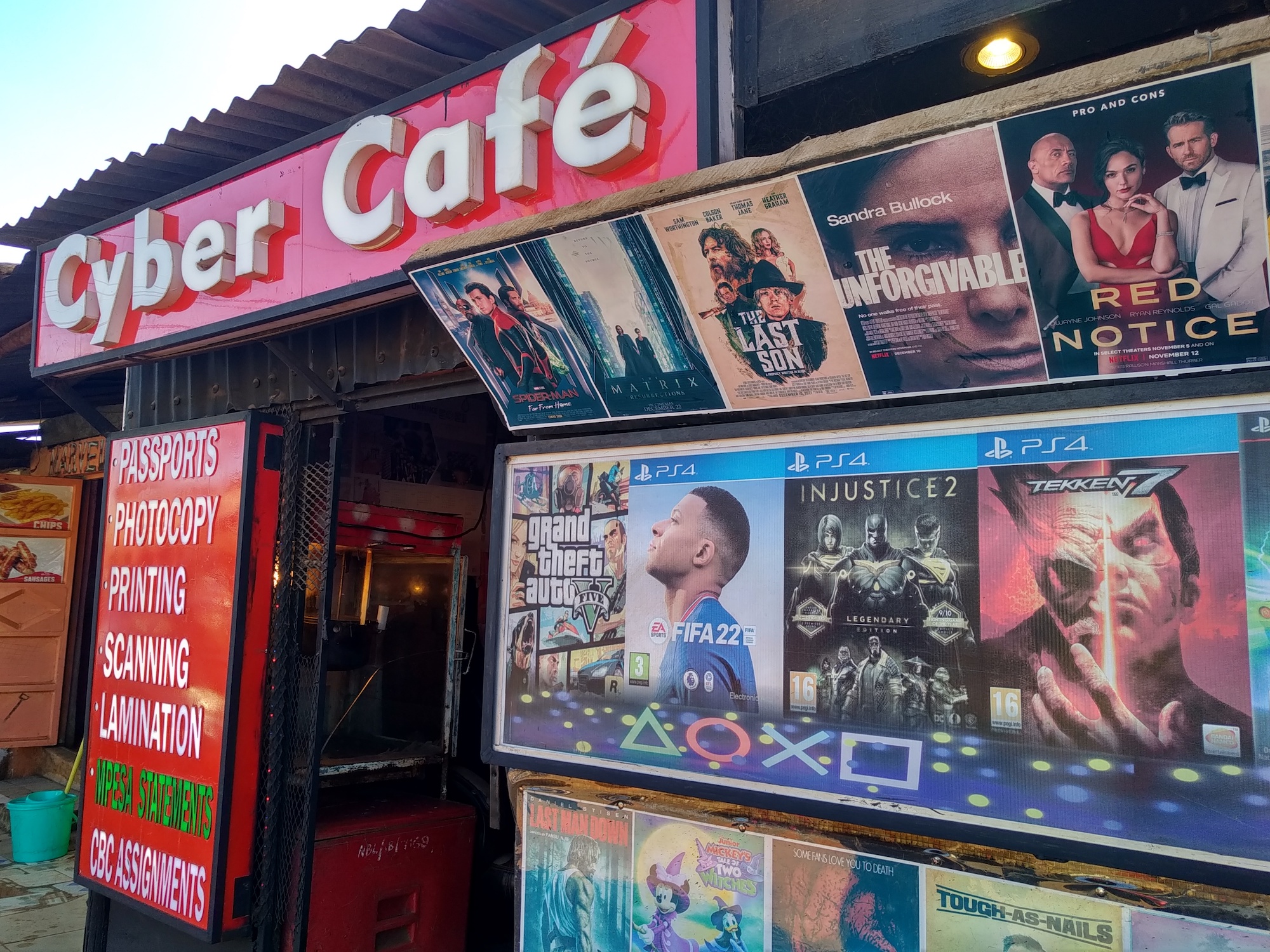
Entertainment is important, even if you don’t have a toilette at home
For dinner, I was supposed to meet Nadia, a local tinder-match where I explicitly wrote that I am looking only for conversations. At the end, before going to the restaurant she asked if I would cover her Uber, hell no! Meeting out of humane reasons is a lost art of living. Instead, I treated myself to a high-end local restaurant for some lamb-stew with mashed sweet potato. James, the waiter, saw me playing some chess on the iPad and wanted to challenge me or a game. They have a set in the restaurant, and he would ask his boss for a break, hehe.. his boss said “No” to him but “yes” to Lawrence, who is the baker and has finished his duties. Lawrence came with the set and we played two games. He told me that a chess trainer comes every now and then to train the staff of the restaurant! what? why? cool, no?
